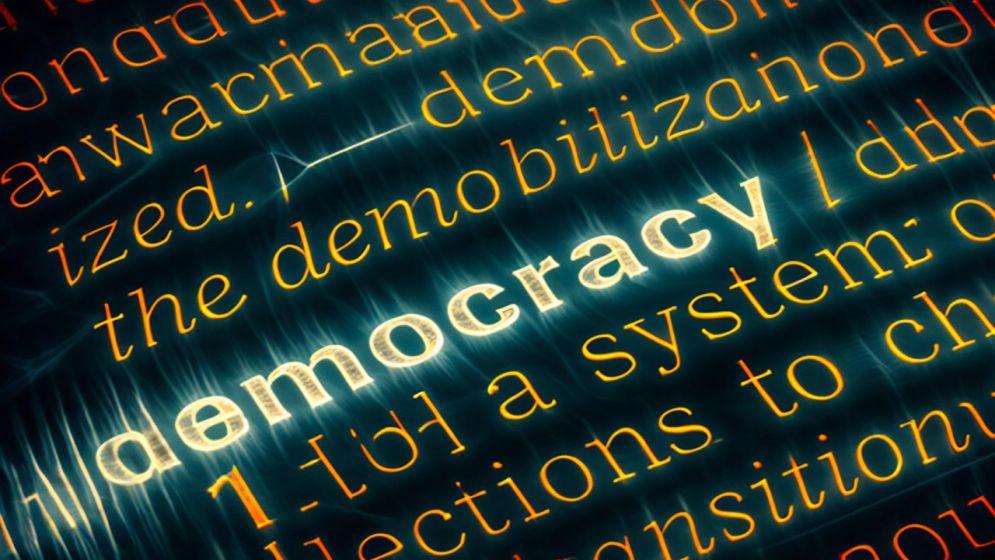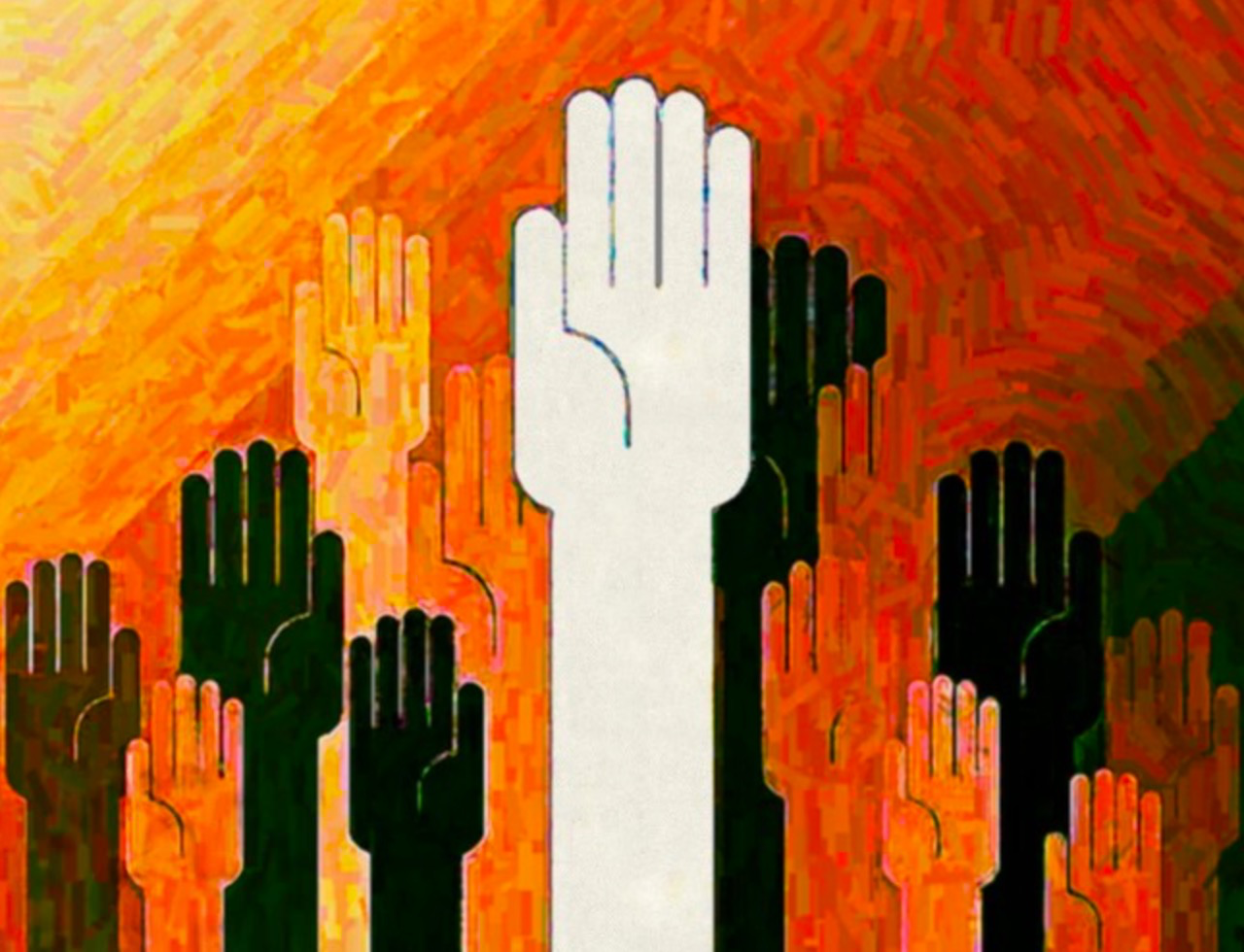The abyss awaits: The need for a timely democratic transition

Sunil Gangopadhyay, celebrated for his monumental works Shei Shomoy, Prothom Alo, and Purba Paschim, is perhaps best known for crafting epic narratives that explore the socio-political fabric of 19th and 20th century Bengal, as well as the Bengali diaspora.
These works have earned him a place among the literary giants of his time. However, one of his lesser-known novels, Eka ebong Koyekjon, while not an epic, holds its own as a poignant commentary on personal disillusionment against the backdrop of historical change.
The story revolves around a politically naive young man who dedicates his prime years to the struggle for freedom, only to realize, after the revolution has ended, that he is ill-prepared for the world that follows.
It’s a tale that deserves far more recognition than it currently enjoys.
As Bangladesh finds itself once again mired in political instability—only six months after the fall of Sheikh Hasina's authoritarian regime—I am reminded of Gangopadhyay's novel, and I find myself asking: What does a revolutionary do when the revolution has ended?
In a recent conversation with Naomi Hossain, Professor of Development Studies of SOAS and Asif Shahan Khan Associate Professor of Development Studies of Dhaka University the Monsoon Revolution was framed as a movement born not from desperation, but from aspiration.
Advisor Mahfuj Alam’s early Facebook post captured this sentiment perfectly, with his reference to July Gana Akankha—the aspirations of the people from July.
So what were the aspirations of the young people who bravely confronted Hasina’s enforcers in July 2024, before Abu Sayeed’s tragic death? What lay behind the quota protests that galvanized so many?
Over the past decade, Bangladesh has witnessed an explosive growth in the number of university graduates. So, what does a university graduate in Bangladesh aspire to?
The answer, though unspoken in many Bengali novels, is crystal clear: a stable job, social status, and a suitable spouse.
Many recent graduates were the first in their families to attend university, and their aspirations likely mirror those of previous generations—rooted in the pursuit of economic stability and upward mobility.
However, while the supply of graduates has soared, the availability of jobs that demand a university education has not kept pace.
This mismatch has created an environment of frustration. Moreover, many of the new public universities established across the country in recent years suffer from poor standards, compounded by the general decline in educational quality during Hasina’s tenure.
As a result, the opportunities available to graduates of universities such as Begum Rokeya—where Abu Sayeed earned his English degree—are far fewer than those available to an English honours student from the previous generation.

Failing to breach the
gap
This widening gap between education and opportunity is where the true tragedy of Eka ebong Koyekjon resonates.
Just as Sunil Gangopadhyay’s protagonist found himself adrift after the revolution’s closure, so too do many of today’s young graduates find themselves uncertain and unprepared for a future that no longer reflects the ideals they once fought for.
In the Episode 7 of our podcast– Orthoniti’r Barota, entrepreneurs Fahim Mashroor and Rubaiyath Sarwar laid bare the graduate unemployment crisis in Bangladesh.
Even if the country had been under the leadership of a democratically elected, liberal government instead of Sheikh Hasina’s despotic rule, the fundamental problem would remain unchanged: a stark mismatch between the supply of university graduates and the demand for their skills, as well as a disconnect between their aspirations and the reality they face in the workforce.
Against this backdrop, the distinction between aspiration and desperation became increasingly blurred for many of the young people who took to the streets last July.
As Asif Saleh, the executive director of BRAC remarked on Facebook during the violent crackdown by Hasina’s forces, the future appeared grim for youth forced to confront a precarious existence.
The Monsoon Revolution, for all its fervor, has not altered these structural realities. Bangladesh’s demographic challenges remain as pressing as ever.
While Hasina’s economic policies—dubbed Hasinomics—were incapable of addressing these issues, her departure has, at least, opened a door to a potential future with more promise.
However, that future is still distant. The present remains bleak for many, perhaps even more so than it was last July.
While the economic slowdown that preceded the revolution and worsened afterward continues to stifle prospects, another significant transformation is taking place across the country: a massive shift in wealth and power.
This redistribution is fueling a deep sense of frustration among those who find themselves excluded from the spoils of this change.
Remarkably, Bangladesh has remained relatively peaceful since Hasina’s departure, with few violent reprisals.
This calm can largely be attributed to the complex web of personal and familial connections between the fallen regime’s henchmen and members of the country’s largest opposition party, the BNP.
Many of these local enforcers of Hasina’s rule traded their ill-gotten wealth for safe passage, allowing them to sidestep the potential fallout of their actions.
This wealth transfer, often referred to as dokhol in local parlance, has benefited many of the young BNP supporters who were instrumental in the Long July protests.
For those without BNP ties, however, this redistribution has deepened a sense of alienation and frustration.
The desperation of the past has transformed into resentment, as many feel left behind in the new order.

Pent up anger and
frustrations
Five decades ago, pop legend Azam Khan returned from the War and sang:
"Jedin chole geche shedin tobu ar ashbe na
Harano din er kotha mone pore keno jani na"
(The days that have passed will never return.
I don't know why I find myself lost in memories of the past)
The singer changes, but the song remains the same.
The undercurrent of frustration that fueled that song was reignited by Hasina's venom. What followed was chaos. And for those like Farhad Mazhar and Pinaki Bhattacharya, who were once revolutionaries, chaos became a ladder to climb.
The fire consuming Bangladesh in the past 48 hours may have many specific triggers, but at its core, it is the culmination of the aspirations, frustrations, and desperate hopes of the youth.
As writer Faham Abdus Salam puts it: "The political turmoil you are witnessing today—my guess is that 90% of the reason is the lack of jobs in the market, the absence of money, and as a result, the loss of hope.
In other words, if we are to hold on to any hope of fulfilling the aspirations of July, we must revive the economy. But this revival cannot be a mere cyclical rebound driven by pent-up demand.
We need sustained, broad-based economic growth—a task far beyond the capabilities of an interim government, and certainly too much for a lame-duck administration like ours.
Only an elected government can provide the necessary policy certainty and institutional reforms to generate the 6-7 percent growth that is essential to meet the expectations of our youth.
Of course, simply holding an election is not enough. We also need a commitment from political parties to some fundamental ground rules: the loser will respect the verdict; the winner will not attempt to rig the next election; and successive governments will refrain from politicizing key institutions.
I have previously discussed the constitutional reforms needed, and I will continue to focus on the economy. But the most urgent requirement is an accord between the key political players—an agreement to hold elections as soon as possible, followed by a commitment to these ground rules.
This is the only way forward for Bangladesh. As Mahfuj Alam asks: "Gorar Himmot ache amader?” (Do we have the capacity to build?)
—
J Rahman is an economist and a writer. The article first appeared in his newsletter ‘Mukti’. It is republished here with stylistic edits and the author’s permission

